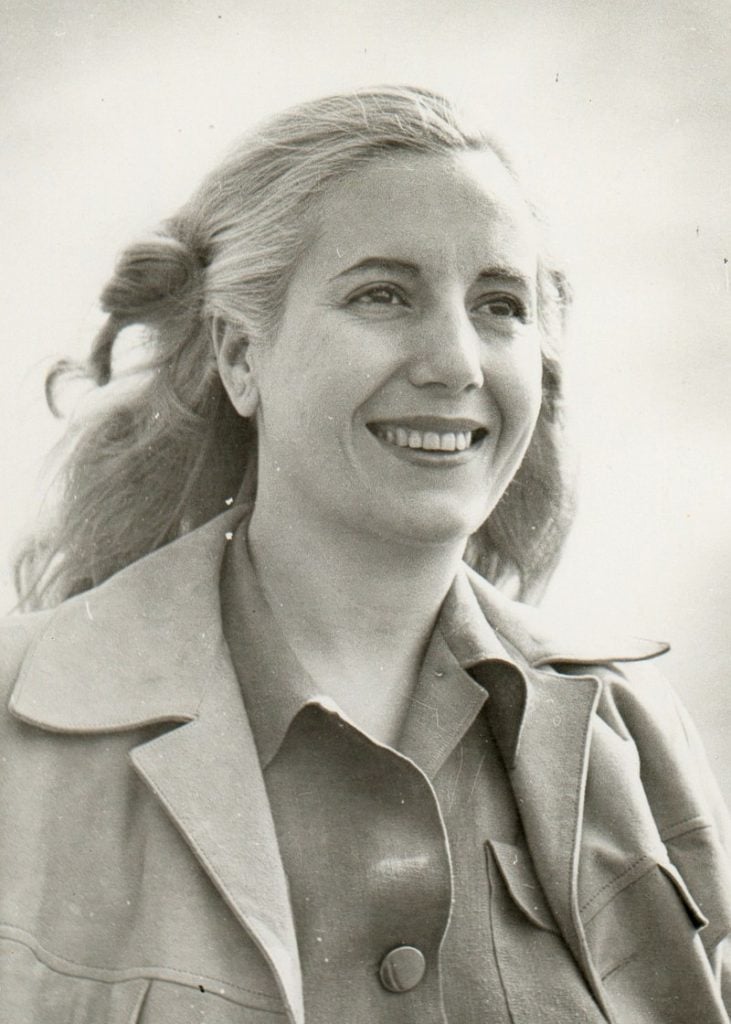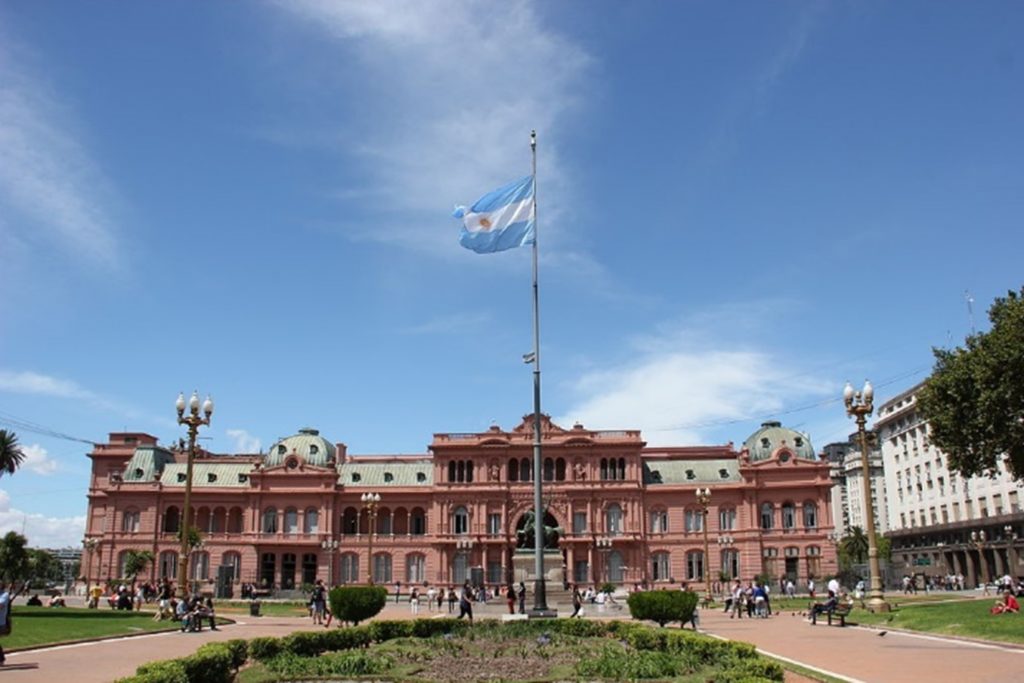
Scroll down for printables.
A crowd assembles in the square outside a huge, pink palace. There is the sound of accordions, tango rhythm and popular songs. A woman in a fine dress emerges onto the balcony and begins to address the adoring mass. She breaks into song: “Don’t Cry for Me Argentina.” The song moves from a plaintive near whisper to a full-bodied ballad in which the woman sings of her love for her country and its people. The courtyard below breaks into rapturous applause. The elegant figure takes her leave. All is well.
This all sounds like a fairy tale. Frankly, it is one. It’s a scene from the 1976 musical “Evita.” None of it really happened, but the people in it really did exist. This is a story about great figures of the 20th century, a century of upheaval and innovation. The country is Argentina, a long, narrow country named for a legendary land of silver. The pink palace is the Casa Rosada, an imposing mansion that houses Argentina’s president. And the woman singing on the balcony is his wife, Eva Peron.
Humble beginnings
Eva’s life is a real rags to riches story. In many ways, the truth of her life is even more remarkable than a fairy tale. She was born in a small town on the Argentine Pampas. The Pampas are the vast lowland plains that cover the eastern coastline of Argentina. The capital city, Buenos Aires, is situated in the north east of this region. This city is famous for its eclectic architecture and rich cultural heritage.
But Eva’s hometown was far from all of this. She came into the world on May 7, 1919, in the town of Los Toldos. Her father was relatively wealthy, but he had another family. When he died, Eva’s mother and the five children had to fend for themselves. This was an important moment for Eva. The rich, also known as the upper classes, shunned her and her siblings. We will see that relations between the rich and the poor remained important to her throughout her life.
Marriage
Eva was talented and charismatic. She could ingratiate herself with people and she was a natural leader. Above all, she was ambitious to overcome the limitations of her upbringing and earn her place in the ruling class. Perhaps she felt like this was her due. In any event, she moved to the capital city to work. There’s nothing particularly unusual about this. Young adults often move from rural areas to large cities, especially in difficult times when money is scarce. The 1930s were such a time.
.
.
.
Questions:

- What is the name of the song sung by the woman on the balcony? (Par. 1)
- How do we know the woman was dressed well? Name two. (Par. 1)
- Find a word in the passage (par. 1) that fits the following definition: “Expressing suffering or sadness; having a sad sound.”
- Do you know what a ballad is?
- Find a word in the passage (par. 1) that fits the following definition: “Showing extreme pleasure, love, or enthusiasm for someone or something.”
- What word in the passage is related to clapping?
- What is the name of the 1976 musical mentioned in the passage?
- What country is mentioned in the passage (par. 2)?
- Do you know in which continent Argentina is located?
- What is the name of Argentina’s presidential home?
- What is the name of the woman who sang on the balcony?
- Find an adverb in the passage (par. 2) that means “honestly.”
- Find a word in the passage (par. 2) that fits the following definition: “A new idea, device, or method.”
- Is the “land of silver” a real place? How do you know?
- What is the capital city of Argentina?
- What is Buenos Aires famous for?
- What does the phrase “rags to riches” tell us about Eva’s life story?
- Find a synonym for mixed (par. 3).
- In what year was Eva born?
- What is the name of her birth town?
- How many siblings did she have?
- Was Eva’s father very rich? How do you know?
- What does it mean to shun someone (par. 4)?
- Find an antonym for repugnant in the passage (par. 5). Repugnant means to cause a strong feeling of dislike or disgust.
- Find a phrase that means “to make people like you” (par. 5)
- Find an adjective that means “in short supply” (par. 5).
- Why do people move to cities?
.
.
Answers:

- “Don’t Cry for Me Argentina”
- She was wearing “a fine dress.” The paragraph also states, “The elegant figure takes her leave.”
- Plaintive
- A ballad is a kind of poem or song that tells a story; it can also be a love song.
- Rapturous
- Applause
- “Evita”
- Argentina
- South America
- Casa Rosada
- Eva Peron
- Frankly
- Innovation
- The word “legendary” is a give-away that “the land of silver” is not a real place. A legend is a story from the past that is believed by many people but cannot be proved to be true.
- Buenos Aires
- Its eclectic architecture and rich cultural heritage.
- She grew up poor and became rich.
- Eclectic
- 1919
- Los Toldos
- Four
- He was rich but not very rich, The was “relatively wealthy.”
- To avoid someone.
- Charismatic
- Ingratiate
- Scarce
- To find work.
.
.
Printables:
Comprehension worksheet – passage only
Comprehension worksheet – questions and answers only
Comprehension worksheet with questions and answers per paragraph
.

